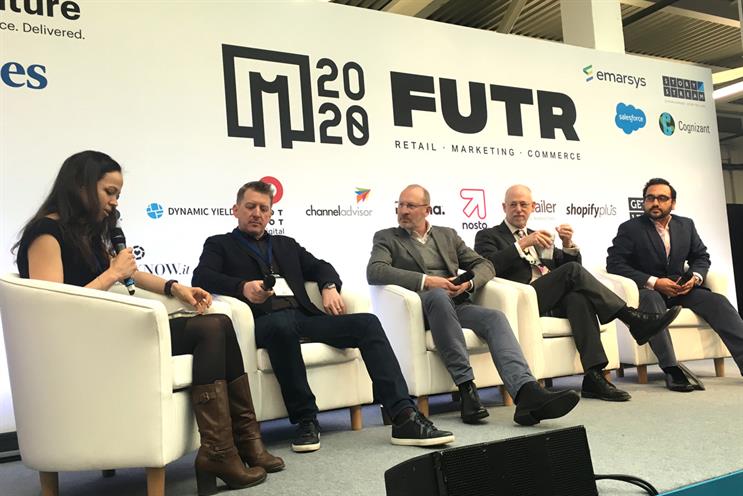
Retailers are facing a dawning realisation that they cannot continue with the cycle of iteration and addition as a tech strategy, Andrew Murphy, group chief information officer at John Lewis, said.
"We have to get real. We can’t continue to be seduced by the short term of what is theoretically possible. We have to step back and take a holistic view of the role tech plays for our customers," Murphy said. "You have to integrate and make the whole larger than the sum of its parts."
Murphy was joined on the panel by Julian Burnett, chief information officer and executive director – supply chain for House of Fraser; George Goley, chief technology officer of Sainsbury’s Argos; and Amitabh Apte, chief information officer and global director enterprise architecture for RB. The panel was moderated by Forbes staff writer Parmy Olson.
"It feels like I've been applying lipstick on a pig for the past five years," agreed Burnett. "At its heart, retail's growth is achieved through people, and technology in the service of that growth should be done through those people."
Retailers have been trapped in a cycle of slapping on incremental patches and tacking on new retail channels without fundamentally altering the way they do business to accommodate these new technologies, Murphy said.
"While incremental improvements have been seductive and often offer a quick ROI – when you line them up, they’re value-destroying," he said.
Using online delivery as an example, Murphy pointed out that by focusing on digital retail, the impact has been to compress the middle of the value chain. "The customer is now reluctant to pay much for digital delivery."
Retailers who opt to support, rather than drive their businesses with technology will not get the most out of their investments, Goley observed. "Google, Amazon and Facebook are tech-driven and it makes all the difference to how they approach business. We're moving towards being tech-driven and we think it's right and proper. The ones who get the most out of technology are those who embed it most deeply and depend on it to drive their business. It's harder to get ROI out of technology if you look at it as a necessary evil."
Technology has become the tool retailers and FMCG manufacturers need to bridge the gap between the brand and the consumer, Apte said.
But above all, retail is a people-driven industry and the technology change has to help the people in the company do their jobs better, rather than acting as another layer between retailer and customer.
"I would argue that Amazon leads on speed and choice but as a brand it is is dispassionate. Retailing and shopping is an emotional activity. It's hard to get emotionally attached to a website," Burnett said.




.jpg)
.jpeg)
